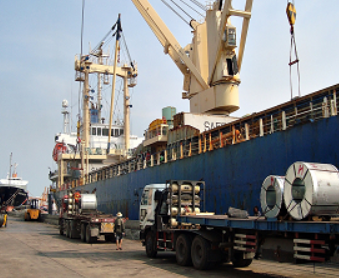For businesses involved in international trade, obtaining the necessary import-export licenses is essential for smooth operations. In Thailand, these licenses play a critical role in ensuring that trade activities are conducted legally, efficiently, and in compliance with local regulations. Whether you’re an established company or a startup looking to expand, understanding the types of licenses, the application process, and their importance is key to navigating the world of global trade.
What Is an Import-Export License?
An import-export license is a legal authorization required by businesses to engage in the import and export of goods in and out of Thailand. This license is issued by the Thai government and is essential for businesses looking to conduct cross-border trade. With it, companies can access the customs database, allowing them to manage their international transactions seamlessly.
Types of Import-Export Licenses in Thailand
Thailand offers several types of import-export licenses to accommodate different business needs. Here’s a breakdown of the most common types:
- Ordinary Import-Export License (Type 01): This general license is required for most import and export activities and covers a wide range of goods including consumer products, raw materials, and machinery.
- Specific Business License (Type 02): Businesses engaged in specialized imports and exports, such as hazardous chemicals, firearms, or restricted agricultural products, require this license.
- Foreign Business License (Type 03): Foreign entities wishing to engage in trade activities in Thailand must acquire this license to operate legally within the country.
- BOI Promotion Certificate: Granted by the Thailand Board of Investment (BOI), this certificate applies to businesses that meet certain criteria designed to encourage investment in the country.
- Certificate of Exemption: Certain products may be exempt from typical import-export restrictions or licensing requirements, and this certificate confirms the exemption status.
Application Process for an Import-Export License
Obtaining an import-export license in Thailand involves several steps:
- Business Registration: Before applying for a license, your business must be registered with the Thai authorities, usually the Department of Business Development or the Ministry of Commerce.
- Document Preparation: You’ll need to gather essential documents such as business registration papers, tax identification numbers, shareholder information, and a business plan. The documents required may vary based on the license type.
- Application Submission: The application must be submitted to the Ministry of Commerce’s Department of Foreign Trade, along with all the required documentation. It’s crucial that the application is complete and accurate to avoid delays.
- Review and Approval: The authorities will review your application to ensure compliance with regulations. This process may take a few weeks, and additional information may be requested.
- License Issuance: If approved, you’ll receive your import-export license. Ensure that you fully understand the terms and conditions associated with it.
Why Are Import-Export Licenses Important?
Having the proper import-export license is essential for several reasons:
- Legal Compliance: Operating without the required license can result in fines or the closure of your business. Ensuring you have the proper license ensures compliance with Thai laws.
- Customs Clearance: Licenses are often necessary for customs clearance. Without them, your shipments may be delayed or even rejected.
- Access to Global Markets: Certain markets have restrictions on the import or export of specific goods, and licenses are necessary to access these markets legally.
- Enhanced Credibility: Holding the right licenses boosts your company’s credibility with customers, partners, and government entities, signaling that your operations are transparent and trustworthy.
- Quality Control: Import-export licenses often require that products meet safety and quality standards, which ensures the consistency and safety of the goods being traded.
Challenges to Consider
Despite the importance of obtaining an import-export license, businesses in Thailand may face several challenges:
- Complex Regulations: Thailand’s import-export regulations are intricate and can change frequently. Staying updated on these regulations is crucial to ensure compliance.
- Language Barriers: For non-Thai speakers, navigating the licensing process can be difficult. Hiring local experts or translators can help streamline the process.
- Costs and Fees: The application process involves various fees such as registration, renewal, and application fees, which need to be factored into your business’s budget.
- Time-Consuming Process: The process of obtaining a license can take time, which may delay the start of your international trade operations. Proper planning is essential to minimize delays.
- Global Business Changes: Changes in global trade agreements, tariffs, or geopolitical factors can affect your import-export activities. Staying adaptable is key to success.
Seeking Professional Guidance
Given the complexities involved in obtaining and maintaining an import-export license, businesses are encouraged to seek professional advice. Experts who are knowledgeable about Thai trade regulations can help ensure that the application process runs smoothly and that your business stays compliant with changing laws.
Conclusion
Import-export licenses are vital for businesses wishing to engage in international trade in Thailand. Understanding the different types of licenses, the application steps, and the importance of having the right credentials can ensure smooth operations and access to global markets. While the licensing process may come with challenges such as compliance complexities, language barriers, and costs, professional guidance can help businesses navigate these hurdles successfully. By securing the necessary import-export licenses and staying informed about regulatory changes, businesses can unlock new opportunities in the competitive global trade arena.


